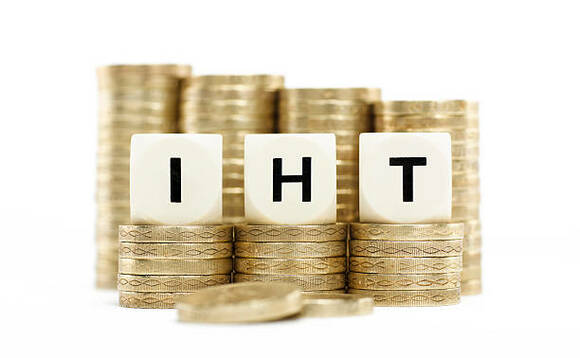Inheritance tax (IHT) receipts for April 2021 to Februrary 2022 were £5.5bn, some £0.7bn higher than in the same period 12 months earlier, latest figures from HM Revenue & Customs (HRMC) revealed.
The government department said it expected higher receipts from March to August 2021 due to a "higher volumes of wealth transfers that took place during the Covid-19 pandemic", however it said it would not be able to verify that assumption until full administrative data becomes available.
The average amount paid per estate was £209,000, according to Quilter's calculations.
Andrew Tully, technical director at Canada Life, said: "This will be welcome news for chancellor Sunak today on the eve of the Spring Statement as the tax intake continues to grow across the board. IHT continues to prove its worth to HMRC making it unlikely that the prolonged freezing of the thresholds will be defrosted in the near future."
HRMC figures also showed that cash receipts were higher from VAT, income tax, capital gains tax and National Insurance Contributions, corporation tax, stamp taxes and hydrocarbon oils.
Wealth tied up in bricks
Stephen Lowe, group communications director at retirement specialist Just Group, said strong rises in house prices - the average home is now worth more than £350,000 according to one measure released this week - were likely to push many estates over the IHT threshold.
"IHT receipts rose in 2021, partly due to higher death rates during the pandemic but gains in house prices approaching 10% a year will also push more estates above the exempt thresholds."
He added that, across the country, IHT is paid on about one in 25 estates but the numbers of estates paying the tax is higher where home prices are higher, most obviously in London and the South East. "Although property sales numbers have fallen overall, the number of properties selling for more than £500,000 has increased and now makes up 17% of all sales in England and Wales in 2021 compared to 11% just two years earlier."
"Property can be tricky when it comes to estate planning because it is providing a place to live and is often a sentimental as much as a financial asset," Lowe continued. "It is also illiquid in the sense you can't trade or gift part of a property as easily as cash or other investments."
Shaun Moore, tax and financial planning expert at Quilter, said: "These ever-increasing figures demonstrate that the government are gradually increasing tax revenues without significantly increasing the burden on taxpayers."
However, he continued, IHT was once viewed as a tax on wealthier individuals, but due to runaway house prices more people are getting caught by the tax and many people who would not consider themselves wealthy will now face a hefty IHT bill.
"This is well reflected in the fact that London and the Southeast have the most amount of estates paying IHT, which is due to the above average house prices in the region."
Plan ahead
Julia Rosenbloom, tax partner at Tilney Smith & Williamson, said: "IHT tax receipts are the gift that keeps on giving for the Treasury as they show yet another year-on-year rise. While the revenue will prove useful to the government to help pay for its ambitious spending programme, this latest update from HMRC should be a wake-up call for families to think carefully about their tax planning.
"The outlook for personal taxes for the coming years is far from certain. However, even without any changes to the way IHT is taxed, many people can still expect to see increased IHT bills given both the nil rate band and residence nil rate band have been frozen until at least April 2026. This is bringing more estates into scope, not least because of rising property values.
"Families should take professional advice and use their current tax allowances before any possible changes are introduced. By planning ahead, and considering investing tax-efficiently or making gifts to family members (which may become increasingly welcome given the increase in the cost of living), there are a number of areas where an IHT bill could be reduced or eliminated."





